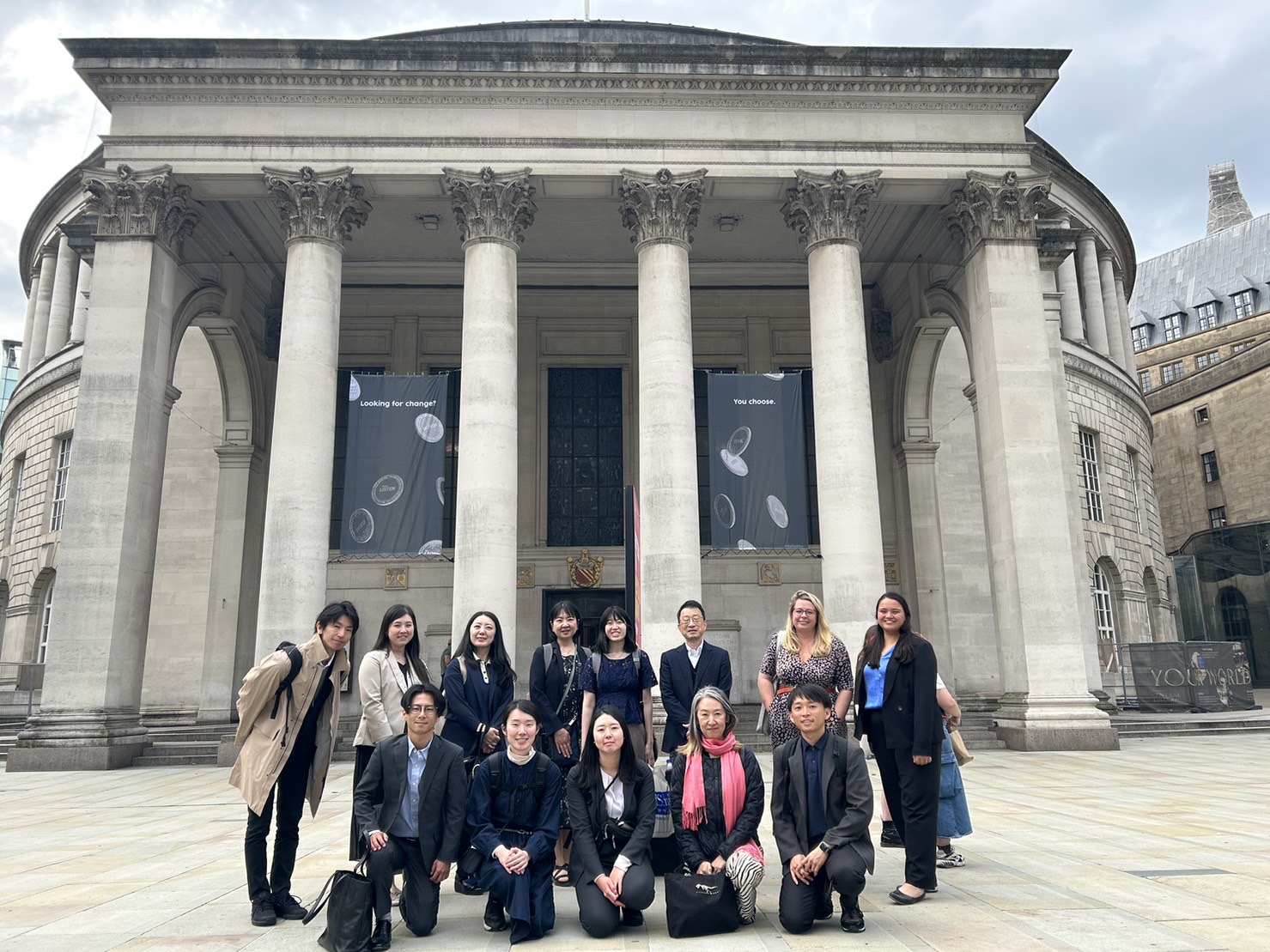 Multicultural Communities Policy Exchange Programme
Multicultural Communities Policy Exchange Programme
JLGC hosted our first Multicultural Communities Policy Exchange Programme from 3-7 July 2023. The delegation comprised eight local officials from various cities and prefectures in Japan. The officials visited many UK organisations including the Department of Levelling Up, Manchester City Council and several London boroughs.
JLGC was happy to welcome programme participants including officials from Tokyo Metropolitan Government, Nagoya City, Shiga Intercultural Association for Globalisation and the Japan International Cooperation Centre. The participants work in diverse areas including support of Ukrainian refugees, child services, and support programmes for Brazilians of Japanese heritage.
Historically Japan has not experienced high levels of immigration. Only three percent of Japan’s population is foreign-born, compared to the UK’s 15 percent. However, Japanese society faces many problems due to its shrinking birth rate, a situation which Prime Minister Kishida described in January this year as ‘standing on the verge of whether we can continue to function as a society’. Some experts believe that relaxing immigration laws could be one way to tackle the problem of an ageing population.
There have been some recent policy changes that reflect this idea. Japan welcomed over 2,300 Ukrainians and 133 asylum seekers from Afghanistan last year, a significant change from the 74 refugee permits granted in 2021. As some participants in the programme work with these communities, visits to organisations such as Islington Council were particularly beneficial. Staff at Islington kindly told us about their amazing work with diverse communities, such as the Homes for Ukraine programme, Afghan support programmes and support for other groups, such as those with no recourse to public funds.
Of course, there are also communities with links to other countries who have long lived in Japan. Participants in the programme also discussed their work with groups such as Japanese-Brazilian communities. These communities are often made up of descendants of Japanese people who immigrated to South America. Unfortunately, when people from communities such as these move to Japan, they can experience discrimination and problems caused by not being able to speak Japanese. Therefore, it was great to hear about Waltham Forest’s ‘No Space for Hate’ programme which targets hate speech and encourages welcoming and inclusive communities for all.
As some participants also work in child services, visiting Our Lady and St George Catholic Primary School and the Faith and Belief Forum also provided fascinating insight into the work done to support children of all faiths and backgrounds. The participants were particularly interested to hear about school linking programmes, in which children from different faith schools meet up a few times over a year to learn more about each other and break down inter-community boundaries. It was great to have the opportunity to talk to the children about their experiences and hear about the impact that programmes such as these can have on young people’s lives.
The delegation visited many organisations and learned about key work being carried out to improve the integration and support of international communities. The visit was not limited to London-based organisations and it was interesting to visit the City of Manchester and the Greater Manchester Combined Authority to see the work being done in other areas of the country. In particular, Greater Manchester Combined Authority shared work about their Equalities Panels, which are a great example of programmes designed to ensure that all voices are heard in policy-making.
Another highlight of the tour was a visit to the Department of Levelling Up, Housing and Communities (DLUHC) to find out more about how national government and local authorities work together in the UK. It was interesting to hear about the challenges of inter-departmental policymaking and the collaboration needed between national and local governments to ensure effective policy and change. The Department also shared how they work with local authorities to implement programmes such as the Homes for Ukraine programme and support for BNO passport holders from Hong Kong.
JLGC would like to thank all the hosting organisations for their warm welcome. The delegation was very happy to visit so many interesting organisations and have the opportunity to reflect upon how to how to implement similar programmes and goals in their home organisations in Japan. The Multicultural Communities Policy Exchange Programme provided a fantastic opportunity for local officials from Japan and the UK to discuss the issues facing both countries and share ideas about how to create welcoming communities for all.
Sources:
https://www.bbc.co.uk/news/world-asia-64373950
https://www.japantimes.co.jp/news/2023/02/22/national/tokyo-refugee-policy/
https://www.jica.go.jp/Resource/jica-ri/news/topics/20220118_02.html

